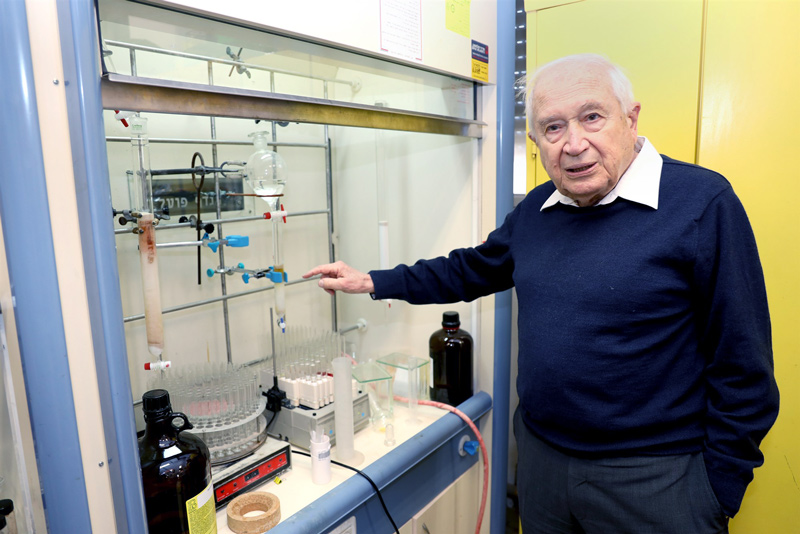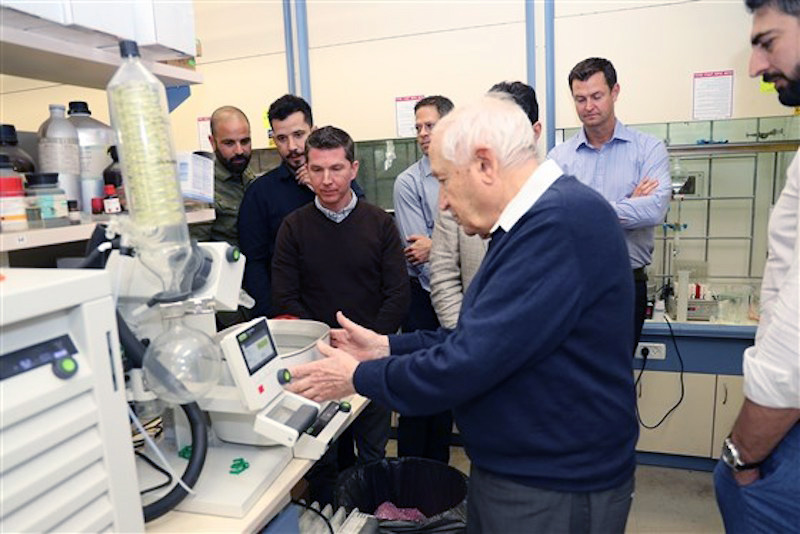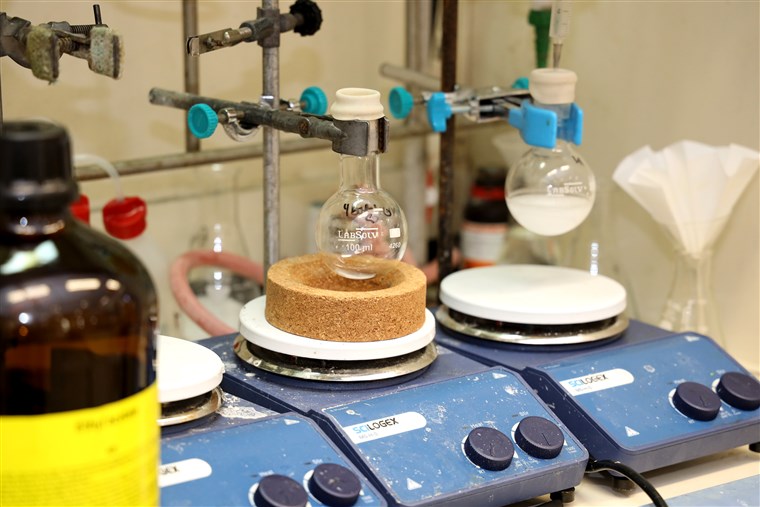In an exciting mainstream media report yesterday, NBC News highlighted a groundbreaking new development from the lab of Dr. Raphael Mechoulam, the godfather of cannabis chemistry: cannabinoid acids.

Dr. Mechoulam, an organic chemist and professor of medicinal chemistry based at the Hebrew University in Jerusalem, led the first team of researchers to discover and synthesize the two primary medicinal compounds in cannabis, CBD and THC, back in 1963 and 1964, respectively (1). He began the first clinical trials on CBD and epilepsy in 1980, but it would be nearly 40 years before FDA approval, in the form of GW Pharmaceuticals’ Epidiolox, would grant access to patients seeking better treatment alternatives in 2018 (2).
On Monday, while presenting at this year’s CannMed Conference in Pasadena, Calif., Mechoulam and his team announced that they had “developed a process for creating synthetic, stable acids” ready to be licensed for drug development and subsequent research.
Until now, acidic cannabinoids, including THCA and CBDA, have been notoriously difficult to source and sustain. These raw-plant compounds are the primary constituents of the cannabis plant—with “activated” molecules only popping up in small numbers—and are readily converted into their neutral forms, THC and CBD, with the addition of heat and time, a process known as “decarboxylation,” making stable formulations easier said than done (3).
Cannabinoid acids have shown great therapeutic promise without risk of intoxication, in the case of THC, and with greater water solubility and bioavailability than their activated progeny (4, 5).

For example, as the NBC article pointed out, researchers at the University of Guelph have shown CBDA to be “1,000 times more potent than CBD in reducing acute nausea” (6) and this raw compound also demonstrates remarkable COX-2 inhibition that could prove valuable in reducing inflammatory pain without the risk of gastrointestinal injury, as is seen with NSAID applications (7).
One of the most beneficial aspects of THCA is its ability to act therapeutically without the intoxicating effects associated with THC, leaving more wiggle room in its therapeutic window. Additionally, THCA has demonstrated potent neuroprotective benefits in an in vitro model of Parkinson’s disease and exciting antineoplastic (anti-cancer) results in several prostate and breast cancer models (5).
According to the NBC article, Mechoulam’s research on acidic cannabinoids is in partnership with “a startup called EPM, six universities in Israel, the U.K. and Canada, the world’s largest topical cream company, and a publicly traded laboratory company”—the U.S. is still out of the picture due to restrictive research access and the prohibitory scheduling of cannabis compounds. As EPM co-founder, Reshef Swisa, expressed to NBC, he sees the first applications for the acidic compounds likely going towards topical products targeting symptoms of psoriasis with an eye on Phase 1 FDA testing within six to twelve months.
While this news is encouraging, FDA approval doesn’t move quickly and there are still many years ahead of us before we see a marketable product from the pharmaceutical industry making its way into the hands of the people who need it now. A good reminder that all you need is access to the raw plant and a juicer to find relief today.
